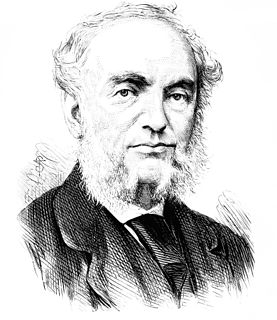A Quote by Malcolm X
I'm sorry to say that the subject I most disliked was mathematics. I have thought about it. I think the reason was that mathematics leaves no room for argument. If you made a mistake, that was all there was to it.
Related Quotes
If you ask ... the man in the street ... the human significance of mathematics, the answer of the world will be, that mathematics has given mankind a metrical and computatory art essential to the effective conduct of daily life, that mathematics admits of countless applications in engineering and the natural sciences, and finally that mathematics is a most excellent instrumentality for giving mental discipline... [A mathematician will add] that mathematics is the exact science, the science of exact thought or of rigorous thinking.
Mystery is an inescapable ingredient of mathematics. Mathematics is full of unanswered questions, which far outnumber known theorems and results. It's the nature of mathematics to pose more problems than it can solve. Indeed, mathematics itself may be built on small islands of truth comprising the pieces of mathematics that can be validated by relatively short proofs. All else is speculation.
I think the biggest misconception about mathematics is that everybody has to learn it. That seems to be a complete mistake. All the time worrying about pushing the children and getting them to be mathematically literate and all that stuff. It's terribly hard on the kids. It's also hard on the teachers. And I think it's totally useless. To me, mathematics is like playing the violin. Some people can do it - others can't. If you don't have it, then there's no point in pretending.
...mathematics is distinguished from all other sciences except only ethics, in standing in no need of ethics. Every other science, even logic, especially in its early stages, is in danger of evaporating into airy nothingness, degenerating, as the Germans say, into an arachnoid film, spun from the stuff that dreams are made of. There is no such danger for pure mathematics; for that is precisely what mathematics ought to be.
Most people have some appreciation of mathematics, just as most people can enjoy a pleasant tune; and there are probably more people really interested in mathematics than in music. Appearances suggest the contrary, but there are easy explanations. Music can be used to stimulate mass emotion, while mathematics cannot; and musical incapacity is recognized (no doubt rightly) as mildly discreditable, whereas most people are so frightened of the name of mathematics that they are ready, quite unaffectedly, to exaggerate their own mathematical stupidity
The branches of mathematics are as various as the sciences to which they belong, and each subject of physical enquiry has its appropriate mathematics. In every form of material manifestation, there is a corresponding form of human thought, so that the human mind is as wide in its range of thought as the physical universe in which it thinks.
The subject for which I am asking your attention deals with the foundations of mathematics. To understand the development of the opposing theories existing in this field one must first gain a clear understnding of the concept "science"; for it is as a part of science that mathematics originally took its place in human thought.
I do not think the division of the subject into two parts - into applied mathematics and experimental physics a good one, for natural philosophy without experiment is merely mathematical exercise, while experiment without mathematics will neither sufficiently discipline the mind or sufficiently extend our knowledge in a subject like physics.
As mathematics had been my best subject at school, my parents proposed - and I accepted - studies at the University of Lund in mathematics, statistics, and economics. The choice of the latter subject is said to be due to the fact that at the age of five years, I was very fond of calculating the cost of the various cakes my mother used to bake.






































